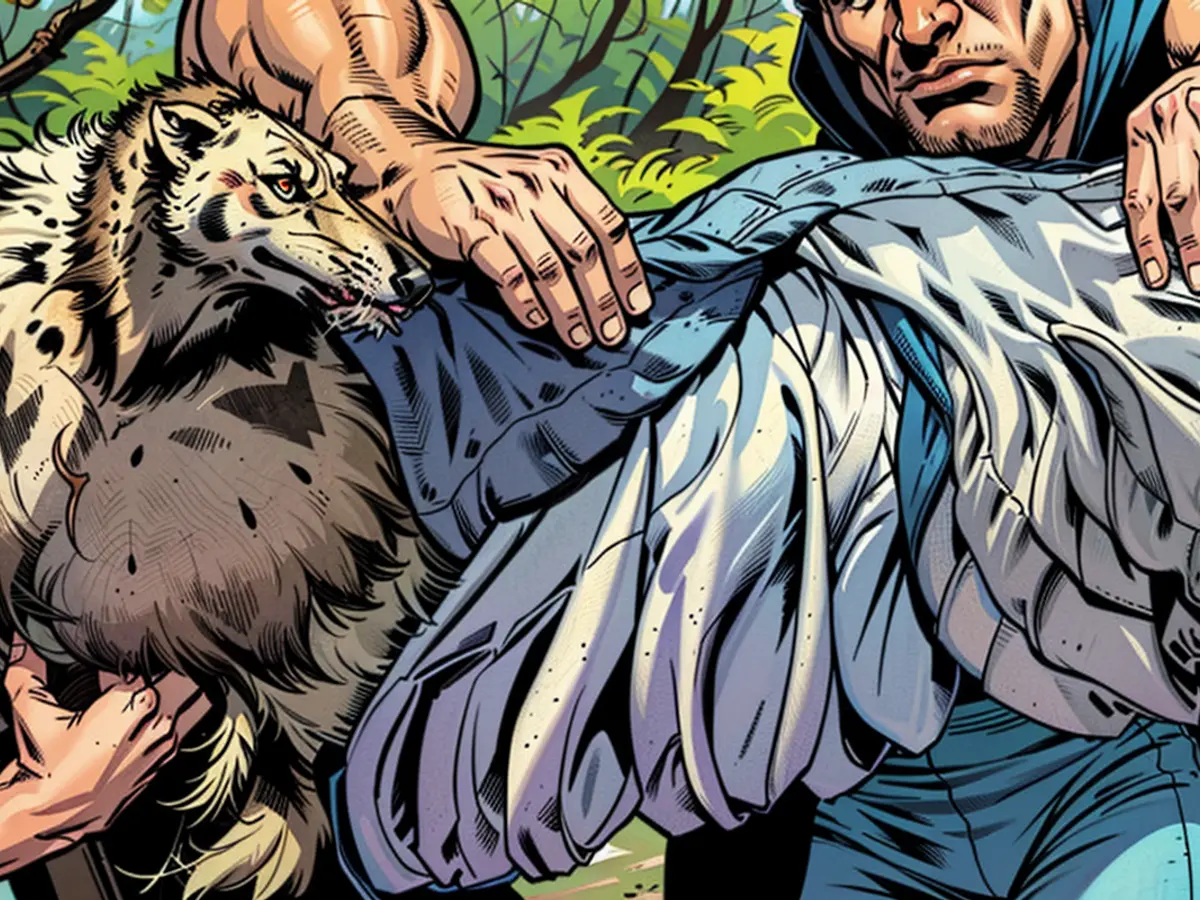Berchtesgaden National Park - Geier Wiggerl takes off on its maiden flight
Vincent's Wiggerl has succeeded now: About a week after his co-resident of the same age in the nest in the National Park Berchtesgaden, the approximately four-month-old Bearded Vulture flew for the first time. On the Sunday morning at 7:25 am, Wiggerl took off - and mastered his first flight very well, reported the Nature Conservation Association LBV and the National Park on Monday.
"With an age of 120 days, the Bartgeier's first flight is exactly average," explained LBV project leader Toni Wegscheider. The rearing of the two is another step towards the spread of this rare species in the Eastern Alps, said National Park project leader Ulrich Brendel.
Vinzenz had started on the previous Tuesday. The first flight could have encouraged Wiggerl - but he stayed in the nest for a while longer. After Vincent's return to the nest and another takeoff, Wiggerl was finally persuaded to make the start.
Meeting a Roe Deer
Curious was Wiggerl's first encounter upon landing. A Roe Deer was clearly irritated by his appearance and set out on a half-hearted attack with its horns. Wiggerl took flight and landed safely on a rocky outcrop.
It is expected that Wiggerl will profit significantly from Vincent's developmental advantage in the next few days, explained the Bartgeier experts. Vincent had already discovered one of the team's feeding stations and showed himself to be an exceptional flyer. Already in the first days after the first flight, he circled widely in the release area and skillfully parried an air attack by a Rough-legged Buzzard.
Living together not always peaceful
Just under four weeks ago, at the end of May, the two Bartgeier were released in the Klausbach Valley. The coexistence of the two "half-grown" was not always peaceful. Occasionally, they fought over the best feeding spots. Once, Wiggerl flew out of the nest after an argument over 30 meters into the depths - but he remained unharmed. All in all, it was a relatively moderate behavior of two young birds towards each other, emphasized National Park project leader Brendel last week.
It was the fourth release in the National Park. The first vultures - Bavaria and Wally - came from Spain in 2021, as did their successors Dagmar and Recka. Sisi and Nepomuk - the first male - came from Austria in 2023. Wally was the only animal not to survive, she was killed by a stone. Vincent is Austrian, Wiggerl came from a breeding program in Finland. Fans can follow the antics of the two at the release site live via webcam.
Largest flying birds
The Vultures, with a wingspan of up to 2.90 meters, are among the largest flying birds in the world. In 1879, according to Wegscheider, the last Bearded Vulture on German soil had been shot - at Hintersee near Ramsau, only about a kilometer from the site where the young birds were released in May. Previously, they were considered dangerous and believed to carry lambs into the abyss. In reality, however, they are harmless to humans and animals. They feed only on carrion.
- The successful maiden flight of Wiggerl in Berchtesgaden National Park, located in Upper Bavaria, Germany, is a significant step towards the spread of the Bearded Vulture species in the Eastern Alps.
- During his first flight, Wiggerl had an encounter with a Roe Deer, who seemed slightly irritated and initiated a half-hearted attack with its horns.
- National Park project leader Ulrich Brendel mentioned that Wiggerl is expected to benefit from Vincent's developmental advantage in the coming days, as Vincent has already demonstrated exceptional flying skills and discovered one of the team's feeding stations.
- The rearing and release of Wiggerl and Vincent are part of science-driven nature conservation efforts in Germany, with the ultimate goal of preserving the Bearded Vulture population and its habitat in the Eastern Alps.
- The Vultures, like Wiggerl and Vincent, are among the largest flying birds in the world, with a wingspan of up to 2.9 meters, and play a crucial role in nature conservation by cleaning and recycling carcasses in the ecosystem.
- The National Park Berchtesgaden's efforts in rearing and releasing Bearded Vultures, such as Wiggerl and Vincent, are part of a wider tradition in Bavaria, where the LBV (Nature Conservation Association) and other organizations have been working since 1873 to protect and conserve the region's rich wildlife and natural landscapes.








